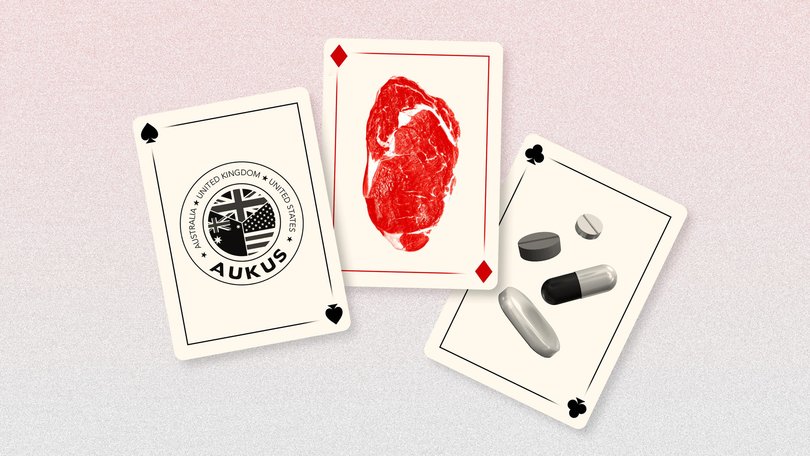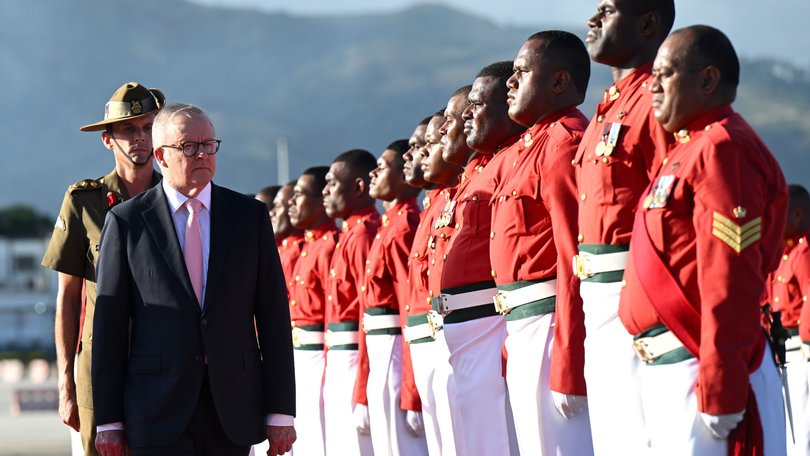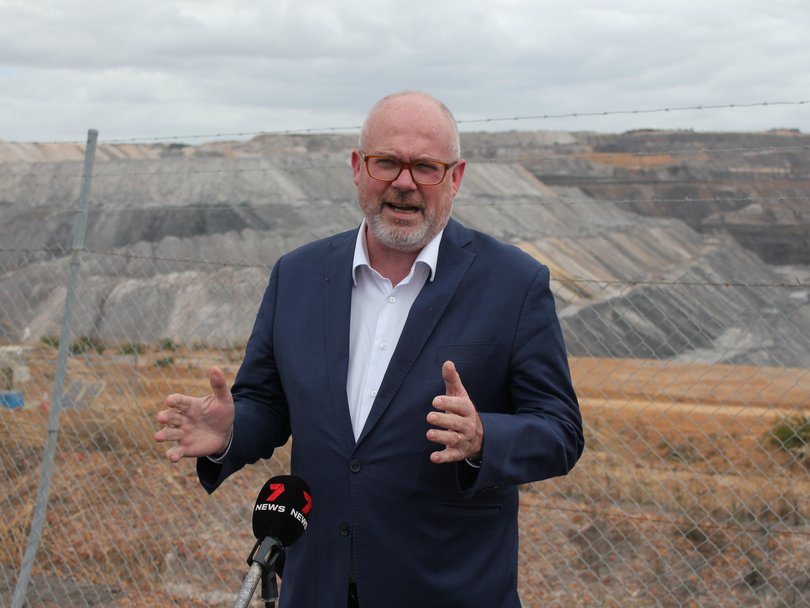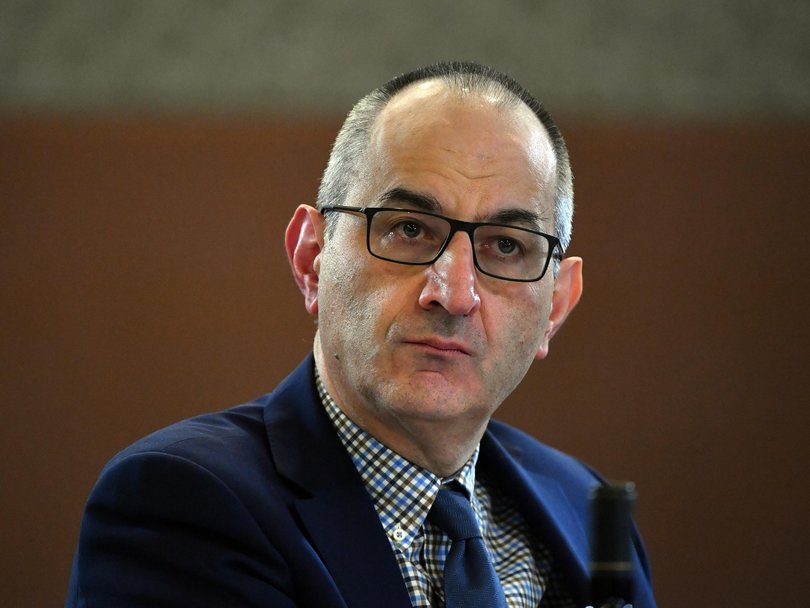Defence, tariff talk on cards for Anthony Albanese in high-stakes G7 summit meet with Donald Trump
Anthony Albanese will need to perform deft diplomatic manoeuvres at G7 summit in the first major foreign policy test of his new term.

Prime Minister Anthony Albanese must pull off a high-stakes charm offensive this weekend as he heads to Canada for an expected first meeting with US President Donald Trump to thrash out major differences over trade and defence.
The sit-down between the two leaders on the margins of the three-day G7 summit in Alberta, which starts on Sunday, has not yet been nailed down, but will represent Mr Albanese’s first major foreign policy test of the new term if it goes ahead.
Officials have stressed none of the G7 leaders have yet secured a one-on-one with Mr Trump, whose own presence is in doubt with his administration locked in a domestic power struggle over civil unrest in California and tackling an escalating conflict in the Middle East after Israel on Friday launched multiple airstrikes on Iran.
Sign up to The Nightly's newsletters.
Get the first look at the digital newspaper, curated daily stories and breaking headlines delivered to your inbox.
By continuing you agree to our Terms and Privacy Policy.If Mr Trump does attend, the Prime Minister faces the unenviable position of domestic political derision if he is not granted facetime, or the risk of a public dressing down over the latest bilateral irritant for the unpredictable President.
Mr Albanese is presumably hoping for a more private conversation when the leaders gather in the secluded alpine setting of the Pomeroy Kananaskis Mountain Lodge in Alberta, but any fireside chat with Mr Trump will be far from cosy.
Topping the thorny talking points will be Mr Trump’s sweeping trade tariffs, denounced by the Government as “not the act of a friend”, and US demands for Australia to lift defence spending to 3.5 per cent of GDP beyond the current 2.33 commitment – a benchmark Mr Albanese has repeatedly signalled he is not ready to budge on.
Complicating their talks is the launch of a Pentagon review into the AUKUS nuclear-powered submarine program, which was revealed on Thursday although privately flagged to Canberra weeks ago, and which is viewed as a possible attempt to strongarm Australia to hike its military budget.

The Prime Minister must perform a deft diplomatic manoeuvre to convince the transactional US President he is getting a good deal with Canberra on defence cooperation, while also making the case for an Australian exemption on tariffs.
“The Prime Minister is a very experienced international negotiator, and I certainly won’t preempt what he might want or have to say, but obviously this is an important meeting,” said Foreign Minister Penny Wong on Friday.
Mr Albanese faces arguably less pressure to deliver a major breakthrough on trade levies, which no country has achieved to date, although the UK has successfully managed a temporary reprieve from the doubling of steel and aluminium tariffs from 25 to 50 per cent.
The Coalition has demanded Mr Albanese, at the very least, reach the same 25 per cent reduction, but a total carve-out from a baseline ten per cent tax on all imports is less likely.
While the US may be eyeing a slice of the Australian beef market or reforms to its much-valued Pharmaceutical Benefits Scheme as potential bargaining chips, the Government has already stated Australia’s biosecurity advantage or medicines cap are not on the table.
Only about 5 per cent of Australian export goods are destined for markets in the US and Canberra has consistently argued that America sells more to Australia than it buys.
In an interview with the Nightly, Industry Minister Tim Ayres tempered expectations of an extensive shift on the US tariffs policy.
“We’ve got the lowest possible tariff arrangement. Nobody’s got a better outcome than Australia,” he said.

“I expect the Prime Minister will have respectful and direct discussions with his counterpart on those questions,” he said, but added that Australia was also looking to diversify its economy.
“There is a flotilla of Australian engagement on this question, but also with our partners,” he said.
As they came to grips with trade disruption, “they’re all reaching the same conclusion; strengthening supply chains, maintaining open markets, putting our shoulder to the wheel on supporting multilateral institutions, but also diversifying our own economies.”
The biggest sticking point with Mr Trump may lie in the evolving nature of bilateral defence ties despite a longstanding and mutually beneficial security partnership.
Australia will be seeking assurance of the Trump administration’s long-term commitment to the $368 billion trilateral AUKUS pact with the US and UK, which is viewed as critical to the country’s defence as regional tensions grow over China’s military build-up and territorial claims.
The US will continue to press Canberra for a larger investment in its military capabilities beyond AUKUS to meet the same threat.
While Mr Albanese has dug his heels in over Australia deciding its own levels of defence spending, former Home Affairs boss Mike Pezzullo said he should explain to Mr Trump how AUKUS would add to the combat capability and operations vital to national security of the United States.
The Prime Minister needed to stress Australia was a “good ally” contributing to US force posture with runway infrastructure for US bombers, a West Australian berth for submarines and fuel installations in Darwin, he said.
Australia could also alleviate US concerns about its own stretched submarine fleet and construction yards by accelerating the expansion of the shipyard planned for Henderson, WA, to offer more maintenance facilities, Mr Pezzullo argued.

Mr Albanese should also convey to the President that he understood his concern about allied burden sharing with a commitment to scrutinise Australia’s capability shortfalls in a defence review due next year, he added.
Tom Corben, a research fellow in the foreign policy and defence program at the United States Studies Centre, agreed that offering more support to the US submarine industrial base would send a crucial message.
The AUKUS provision to enable Australian shipyards and naval facilities to conduct maintenance on Virginia-class submarines would relieve pressure on struggling US shipyards, freeing up manpower to build new vessels.
This would show the Trump administration, “this isn’t kind of quite a one sided deal. We are pulling our weight. We’re doing our best to help.”
Arriving in Fiji on Friday, on the first stop of a route that will take him via Seattle to Canada, Mr Albanese played down concerns that AUKUS was at risk from the review, likening it to a stocktake undertaken by the new British government when Keir Starmer was elected last year.
“We are very confident that AUKUS is in the interests of all three of our nations, and that it will play an important role in peace, security and stability around the world at a time when that is absolutely necessary,” he said.

